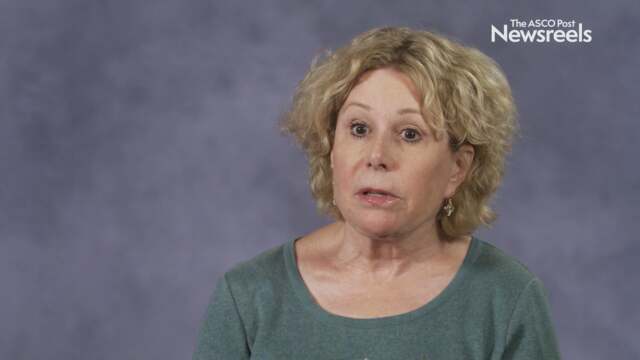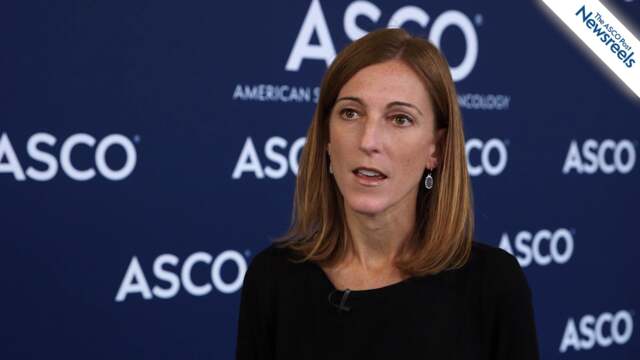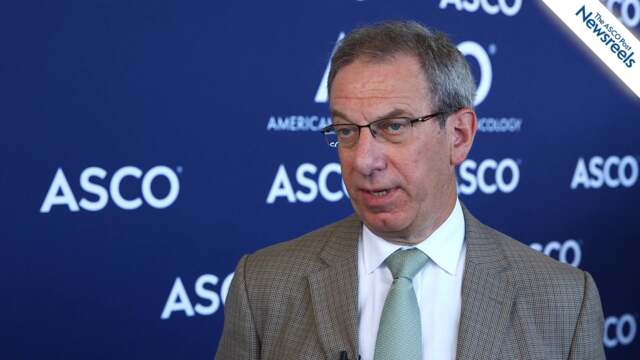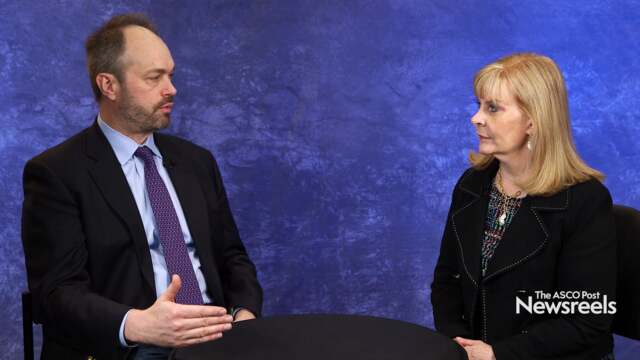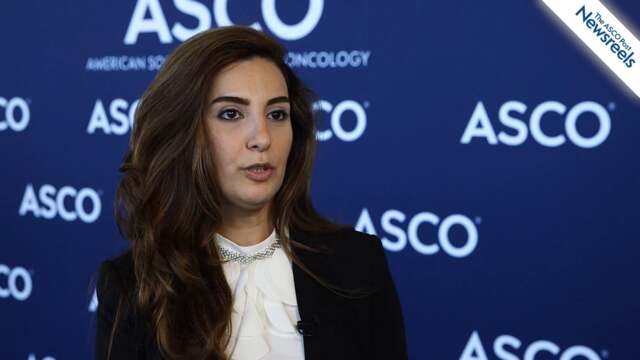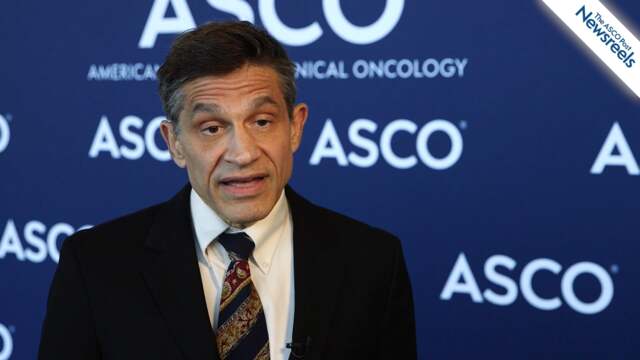Neonatal Dysregulated Immune Function and Pediatric B-Cell Precursor ALL
A high incidence of clinically diagnosed infections in the first year of life among children who later developed acute lymphoblastic leukemia (ALL) has led researchers to propose that children with ALL are born with a dysregulated immune function, resulting in a more vigorous reaction to infections ...
FDA Approves Moxetumomab Pasudotox-tdfk for the Treatment of Hairy Cell Leukemia
The U.S. Food and Drug Administration (FDA) today approved moxetumomab pasudotox-tdfk (Lumoxiti) injection for intravenous use for the treatment of adult patients with relapsed or refractory hairy cell leukemia (HCL) who have received at least two prior systemic therapies, including treatment with...
Study Finds Hispanic Pediatric Patients at Increased Risk of Methotrexate Neurotoxicity During Treatment for ALL
Case studies have reported a high prevalence of methotrexate subacute neurotoxicity among Hispanic adolescents with acute lymphoblastic leukemia (ALL), suggesting sensitivity to methotrexate therapy may differ by race and ethnicity. Now, a prospective study in pediatric patients with ALL has found...
Suboptimal Use of Initial Chemotherapy in Newly Diagnosed Acute Myeloid Leukemia
IN A STUDY of National Cancer Database data reported in Blood Advances, Vijaya Raj Bhatt, MD, of the University of Nebraska Medical Center, and colleagues found that 25% of patients with newly diagnosed acute myeloid leukemia (AML) did not receive initial chemotherapy, despite evidence that...
Outcomes After Discontinuation of Tyrosine Kinase Inhibitor Therapy in Chronic Myeloid Leukemia
In an interim analysis of a European trial reported in The Lancet Oncology, Francois-Xavier Mahon, MD, of Institut Bergonié, Bordeaux, and colleagues found that discontinuation of tyrosine kinase inhibitor therapy in patients with chronic myeloid leukemia (CML) with deep molecular response was...
Comparison of Methotrexate Intensification Regimens in Children and Young Adults With T-Cell ALL
As reported by Winter et al in the Journal of Clinical Oncology, findings in the Children’s Oncology Group (COG) AALL0434 trial indicate improved outcomes with a COG methotrexate intensification regimen vs a high-dose methotrexate intensification regimen in children and young adults with...
FDA Accepts sBLA for Dasatinib in Pediatric Patients With Newly Diagnosed Ph-Positive ALL
The U.S. Food and Drug Administration (FDA) recently accepted a supplemental biologics license application (sBLA) for dasatinib in combination with chemotherapy for the treatment of pediatric patients with newly diagnosed Philadelphia chromosome (Ph)-positive acute lymphoblastic leukemia...
CAR T-Cell Therapy in Europe: Differing Decisions on Approval of Two Agents
The European Commission (EC) recently approved the chimeric antigen receptor (CAR) T-cell therapy tisagenlecleucel (Kymriah) in the European Union (EU) for the treatment of pediatric and young adult patients up to 25 years of age with B-cell acute lymphoblastic leukemia (ALL) that is...
Blinatumomab in Adult and Pediatric Patients With B-Cell Precursor Acute Lymphoblastic Leukemia
EARLY IN 2018, blinatumomab (Blincyto) was granted accelerated approval for the treatment of adult and pediatric patients with B-cell precursor acute lymphoblastic leukemia (ALL) in first or second complete remission with minimal residual disease ≥ 0.1%.1,2 Supporting Efficacy Data APPROVAL WAS...
Ivosidenib for Relapsed or Refractory Acute Myeloid Leukemia
ON JULY 20, 2018, the U.S. Food and Drug Administration (FDA) approved ivosidenib (Tibsovo) for the treatment of adult patients with relapsed or refractory acute myeloid leukemia (AML) with a susceptible isocitrate dehydrogenase-1 (IDH1) mutation, as detected by an FDA-approved test.1,2 The FDA...
FDA Grants Orphan Drug Designation to ASLAN003 in Acute Myeloid Leukemia
The U.S. Food and Drug Administration (FDA) has granted ASLAN003 Orphan Drug designation as a treatment for acute myeloid leukemia (AML). ASLAN003 is an orally active, potent inhibitor of human dihydroorotate dehydrogenase (DHODH) that has the potential to be a first-in-class drug in AML. The FDA...
Bendamustine Followed by Obinutuzumab Plus Venetoclax in Treatment-Naive and Relapsed/Refractory CLL
In a German phase II trial reported in The Lancet Oncology, Cramer et al found promising response rates with bendamustine followed by obinutuzumab (Gazyva) plus venetoclax (Venclexta) in both treatment-naive and relapsed/refractory chronic lymphocytic leukemia (CLL). In the trial, patients with an ...
Guidelines for Pediatric CAR T-Cell Therapy Developed
Almost 1 year after the U.S. Food and Drug Administration (FDA) approval of chimeric antigen receptor (CAR) T-cell therapy for children with acute lymphoblastic leukemia (ALL), researchers at The University of Texas MD Anderson Cancer Center and the Pediatric Acute Lung Injury and...
FDA Grants Breakthrough Therapy Designation to Quizartinib for Relapsed/Refractory FLT3-ITD AML
The U.S. Food and Drug Administration (FDA) has granted Breakthrough Therapy designation to quizartinib, an investigational FLT3 inhibitor, for the treatment of adult patients with relapsed/refractory FLT3-ITD acute myeloid leukemia (AML). Breakthrough Therapy designation is designed to...
Phase III ASTRAL-1 Study of Guadecitabine in Patients With Treatment-Naive AML Ineligible to Receive Intensive Induction Chemotherapy
Results were recently announced from the ASTRAL-1 study evaluating the efficacy and safety of guadecitabine in adults with previously untreated acute myeloid leukemia (AML) who are not eligible for intensive induction chemotherapy. The study did not meet its co-primary endpoints: complete...
Treatment Intensification for Childhood B-Cell Lymphoblastic Leukemia With IKZF1 Deletion
In an analysis of Asian trials reported in the Journal of Clinical Oncology, Yeoh et al found evidence that treatment intensification improved outcomes in childhood B-cell acute lymphoblastic leukemia (B-ALL) with IKZF1 deletion (del). The analysis compared outcomes in the Malaysia-Singapore ALL...
FDA Approves Ivosidenib for Relapsed or Refractory Acute Myeloid Leukemia
On July 20, 2018, the U.S. Food and Drug Administration approved ivosidenib (Tibsovo) for adult patients with relapsed or refractory acute myeloid leukemia (AML) with a susceptible IDH1 mutation as detected by an FDA-approved test. Approval was based on an open-label, single-arm, multicenter...
CPX-351 Liposome in Older Patients With Newly Diagnosed Secondary Acute Myeloid Leukemia
In a pivotal phase III trial reported in the Journal of Clinical Oncology, Lancet et al found that cytarabine and daunorubicin liposome (CPX-351, Vyxeos) significantly improved overall survival vs standard cytarabine plus daunorubicin (7+3 regimen) in older patients with newly diagnosed secondary...
Susan M. O’Brien, MD, on CLL: Sequencing Therapy Options
Susan M. O’Brien, MD, of the University of California, Irvine, discusses three oral agents for the treatment of chronic lymphocytic leukemia/small lymphocytic lymphoma, and the use of chemotherapy for the disease.
Second Allogeneic HCT vs Donor Lymphocyte Infusion in Acute Myeloid Leukemia Relapse
In a retrospective registry study reported in JAMA Oncology, Kharfan-Dabaja et al found no overall survival difference with second allogeneic hematopoietic cell transplantation (HCT) vs donor lymphocyte infusion (DLI) in patients with acute myeloid leukemia (AML) relapse. The study involved 418...
FDA Approves Ivosidenib for IDH1-Mutated AML
Today, the U.S. Food and Drug Administration (FDA) approved ivosidenib (Tibsovo) tablets for the treatment of adult patients with relapsed or refractory acute myeloid leukemia (AML) who have a specific genetic mutation. This is the first drug in its class (isocitrate dehydrogenase-1 [IDH1]...
NCCN Releases New Guidelines for Patients With AML
The National Comprehensive Cancer Network® (NCCN®) has recently released The NCCN Guidelines for Patients with Acute Myeloid Leukemia (AML), which includes resources for better-informed medical decision-making. The NCCN Guidelines for Patients with AML is endorsed by the Aplastic Anemia and MDS...
Expert Point of View: Susan O'Brien, MD, and Bruce Cheson, MD
SUSAN O’BRIEN, MD, Associate Director for Clinical Science, Chao Family Comprehensive Cancer Center, University of California Irvine Health, told The ASCO Post that the pairing of ibrutinib (Imbruvica) and venetoclax (Venclexta) “is clearly a very powerful combination.” The next question, she...
Ibrutinib Plus Venetoclax in CLL: High MRD-Negativity Rates, Reduced Risk for Tumor-Lysis Syndrome
A REGIMEN COMBINING ibrutinib (Imbruvica) and venetoclax (Venclexta) in previously untreated patients with chronic lymphocytic leukemia (CLL) greatly reduced the risk of venetoclax-associated tumor-lysis syndrome and led to promising rates of undetectable minimal residual disease (MRD) in the phase ...
FDA Grants Priority Review for Glasdegib in Patients With Previously Untreated AML
The U.S. Food and Drug Administration (FDA) recently accepted a new drug application and granted Priority Review designation for glasdegib, an investigational oral smoothened inhibitor being evaluated for the treatment of adult patients with previously untreated acute myeloid leukemia (AML) in...
Outcomes of Tisagenlecleucel Therapy in Children and Young Adults With B-Cell Acute Lymphoblastic Leukemia
As reported in The New England Journal of Medicine by Shannon L. Maude, MD, PhD, of Perelman School of Medicine, University of Pennsylvania, Philadelphia, and colleagues, the phase II ELIANA trial has shown that the anti-CD19 chimeric antigen receptor (CAR) T-cell therapy tisagenlecleucel (Kymriah) ...
Long-Term Outcomes With Dasatinib Plus Intensive Chemotherapy in Pediatric/Young Adult Ph-Positive ALL
In an analysis of the Children’s Oncology Group (COG) AALL0622 trial reported in the Journal of Clinical Oncology, Slayton et al found that adding dasatinib (Sprycel) to intensive chemotherapy produced good long-term outcomes in pediatric/young adult patients with newly diagnosed Philadelphia ...
Quizartinib in Relapsed or Refractory AML
In a phase II trial reported in The Lancet Oncology, Cortes et al found that the next-generation FLT3 inhibitor quizartinib had good activity in patients with relapsed or refractory acute myeloid leukemia (AML), with greater activity in patients with FLT3-ITD mutations. Study Details The study...
Suboptimal Use of Initial Chemotherapy in Newly Diagnosed AML
In a study of National Cancer Database data reported in Blood Advances, Bhatt et al found that 25% of patients with newly diagnosed acute myeloid leukemia (AML) did not receive initial chemotherapy, despite evidence that chemotherapy is associated with a survival benefit and improvement in symptoms ...
Patients With AML Have Reduced Risk of Early Mortality at NCI-Designated Cancer Centers
RESEARCHERS AT the University of California (UC), Davis, have shown that patients with acute myeloid leukemia (AML) who received their care at a National Cancer Institute (NCI) cancer center in California had a dramatically reduced risk of early mortality. Using data from the California Cancer...
Activity of Ivosidenib in IDH1-Mutated Relapsed or Refractory Acute Myeloid Leukemia
As reported at the 2018 ASCO Annual Meeting and in The New England Journal of Medicine by DiNardo et al, early-phase testing has shown activity of ivosidenib, an oral small-molecule inhibitor of mutant IDH1, in patients with IDH1-mutated relapsed or refractory acute myeloid leukemia (AML). IDH1...
Phase I Study Shows Safety, Efficacy of Ivosidenib in Acute Myeloid Leukemia
Ivosidenib, an isocitrate dehydrogenase-1 (IDH1) inhibitor, yielded durable and molecular remissions in some patients with IDH1-mutated advanced relapsed or refractory acute myeloid leukemia (AML). At a dose of 500 mg/d, ivosidenib was associated with a low frequency of grade 3 or higher...
Minimal Residual Disease Testing in AML: Still a Shifting Target
Testing for minimal residual disease (MRD) has become an established part of the management of acute lymphoblastic leukemia (ALL), but in acute myeloid leukemia (AML), the technology still warrants validation. To address issues and set new standards, the European LeukemiaNet Working Party recently ...
EHA 2018: Single-Agent Quizartinib vs Chemotherapy in Relapsed or Refractory AML
Results from the phase III QuANTUM-R study of single-agent quizartinib in relapsed or refractory acute myeloid leukemia (AML) were presented by Cortes et al at the 23rd Annual Congress of the European Hematology Association (EHA) (Abstract LB2600). Study Findings QuANTUM-R study results showed...
EHA 2018: Undetectable MRD Rates With Venetoclax Plus Rituximab in Relapsed or Refractory CLL
Investigational data from a new analysis of undetectable minimal residual disease (MRD) rates from the phase III MURANO trial of venetoclax (Venclexta, a first-in-class oral B-cell lymphoma 2 [BCL2] inhibitor) in combination with rituximab (Rituxan) in patients with relapsed or refractory chronic...
EHA 2018: Obinutuzumab or Rituximab Plus Chlorambucil in CLL
Data from the final analysis of the CLL11 study evaluating obinutuzumab (Gazyva)-based treatment in previously untreated chronic lymphocytic leukemia (CLL) was presented by Goede et al during the Presidential Symposium at the 23rd Annual Congress of the European Hematology Association (EHA)...
EHA 2018: Alvocidib in Patients With Relapsed or Refractory MCL-1–Dependent AML
Preliminary data from Zella 201—an ongoing phase II study evaluating the efficacy and safety of alvocidib, a potent cyclin-dependent kinase 9 (CDK9) inhibitor, in combination with cytarabine and mitoxantrone in patients with relapsed or refractory MCL-1–dependent acute myeloid leukemia...
iLLUMINATE Trial of Ibrutinib Plus Obinutuzumab for First-Line Therapy of CLL/SLL Meets Primary Endpoint
The phase III iLLUMINATE (PCYC-1130) trial recently met its primary endpoint of improvement in progression-free survival. The study evaluated ibrutinib (Imbruvica) in combination with obinutuzumab (Gazyva) in patients with previously untreated chronic lymphocytic leukemia or small lymphocytic...
Rapid Progression of Adult T-Cell Leukemia/Lymphoma During PD-1 Inhibitor Therapy
In a letter to the editor in The New England Journal of Medicine, Ratner et al describe rapid progression of adult T-cell leukemia/lymphoma (ATLL) in three consecutive patients receiving programmed cell death protein 1 (PD-1) inhibitor therapy with nivolumab (Opdivo). As stated by the authors,...
Adherence to Oral Anticancer Treatment: Priorities in Lymphoma and CLL
ADVANCES IN cancer treatment have been nothing short of breathtaking in recent years. Among the most important has been the advent of effective oral therapies, marking a significant change in the way many patients receive treatment and in the oversight required by the cancer care team. As with...
FDA Approves Second-Line Venetoclax for CLL or SLL With or Without 17p Deletion
On June 8, the U.S. Food and Drug Administration (FDA) granted regular approval to venetoclax (Venclexta) for patients with chronic lymphocytic leukemia (CLL) or small lymphocytic lymphoma (SLL), with or without 17p deletion, who have received at least one prior therapy. MURANO Approval was based ...
Courtney Denton Dinardo, MD, on AML: Treatment Study Results
Courtney Denton Dinardo, MD, of The University of Texas MD Anderson Cancer Center, discusses findings on the durable response with venetoclax in combination with decitabine or azacitidine in elderly patients with acute myeloid leukemia (Abstract 7010).
Peter Hillmen, MB, ChB, on CLL: Results From the MURANO Trial
Peter Hillmen, MB, ChB, of St James’s University Hospital, discusses phase III study findings on minimal residual disease negativity with venetoclax plus rituximab in relapsed or refractory chronic lymphocytic leukemia (Abstract 7508).
William G. Wierda, MD, PhD, and Julie M. Vose, MD, MBA, on CLL: Results From the CAPTIVATE Trial
Julie M. Vose, MD, MBA, of the University of Nebraska Medical Center, and William G. Wierda, MD, PhD, of The University of Texas MD Anderson Cancer Center, discuss phase II findings on ibrutinib plus venetoclax in first-line treatment of chronic lymphocytic leukemia (Abstract 7502).
Rita Elias Assi, MD, on AML and Genomics
Rita Elias Assi, MD, of The University of Texas MD Anderson Cancer Center, discusses the impact of next-generation sequencing on treatment selection in acute myeloid leukemia (Abstract 103).
Robert J. Kreitman, MD, on Hairy Cell Leukemia: Results From an International Study
Robert J. Kreitman, MD, of the National Cancer Institute, discusses findings on moxetumomab pasudotox in heavily pretreated patients with relapsed or refractory hairy cell leukemia (Abstract 7004).
FDA Grants Priority Review to Gilteritinib for the Treatment of Relapsed or Refractory FLT3 Mutation–Positive AML
The U.S. Food and Drug Administration (FDA) has accepted, with Priority Review, a new drug application (NDA) for gilteritinib for the treatment of adult patients with relapsed or refractory acute myeloid leukemia (AML) and a mutation in the FLT3 gene, as detected by an FDA-approved test....
Molecular Minimal Residual Disease Detection Shows Further Promise in Acute Myeloid Leukemia
Extended next-generation sequencing genomic profiling in acute myeloid leukemia (AML) has revealed remarkable heterogeneity and molecular complexity of the disease and provided critical insights into the genetic mechanisms underpinning of preleukemic and leukemic pathogenesis.1,2 Despite...
Targeted Sequencing Detection of Molecular Minimal Residual Disease and Prognosis in Acute Myeloid Leukemia
In a study reported in The New England Journal of Medicine, Mojca Jongen-Lavrencic, MD, PhD, of Erasmus MC Cancer Institute, and colleagues found that molecular minimal residual disease identified by next-generation sequencing during complete remission was associated with an increased risk of...
NCCN Clinical Practice Guidelines in Oncology (NCCN Guidelines®): 2018 Guidelines Updates
In 1996, the National Comprehensive Cancer Network® (NCCN®) published its first set of Clinical Practice Guidelines in Oncology (NCCN Guidelines®) covering 8 tumor types. Guidelines are now published for more than 60 tumor types and topics. Some of the key updates were presented at NCCN’s 23rd...
